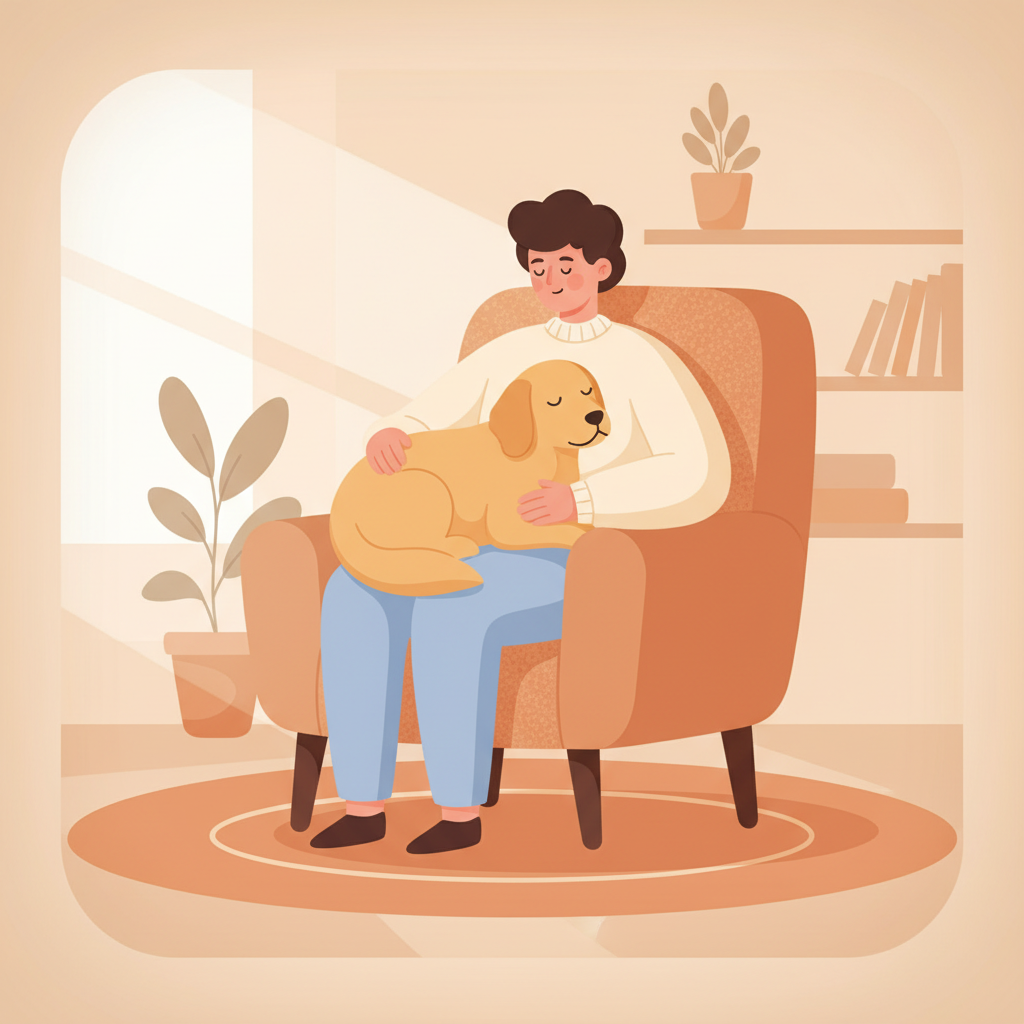Feeling emotionally overwhelmed is something many animal lovers face, especially when life throws its challenges. Sometimes, managing stress and emotional ups and downs can feel exhausting.
Thankfully, simple daily habits involving your animal companions can help you build emotional resilience. These habits provide comfort, structure, and emotional grounding to better navigate your feelings.
In this article, we’ll explore practical daily habits that animal lovers can easily add to their routines to strengthen their emotional resilience and find more balance in daily life.
Your 3 Daily Habits For Building Emotional Resilience
Habit 1 — Mindful Pet Interaction
Why: Spending quality time with your pet through mindful petting or play releases oxytocin, often called the “love hormone,” which helps reduce stress hormones and promotes emotional bonding.
How: Dedicate 10 minutes each day to sit calmly with your pet, focusing fully on their presence, petting them slowly and feeling the connection without distractions.
Cue: A natural break in your day, like after work or before bedtime, can be a great time to practice mindful pet interaction.
Habit 2 — Establish a Routine With Your Pet
Why: Animals thrive on routines, and creating a daily schedule for feeding, walking, and care can give structure and purpose to your day, which supports emotional stability.
How: Set consistent times for pet-related activities, such as morning walks or evening feeding, and follow through even on low-energy days.
Cue: Use your pet’s needs as prompts to anchor routines throughout your day, helping you stay on track and grounded.
Habit 3 — Outdoor Time and Social Connection
Why: Taking your pet outside for fresh air and gentle activity improves mood and reduces mental fatigue. It also increases opportunities for friendly social interactions, which enhance feelings of support and community.
How: Aim for a daily walk or outdoor playtime, even just 20-30 minutes, and say hello to other pet owners or neighbors.
Cue: The start or end of your day can be your outdoor time cue, linking it to your pet’s exercise needs and your mood boost.
Week 1 Schedule
| Day | Mindful Pet Interaction | Routine Task | Outdoor Time & Social |
|---|---|---|---|
| Monday | 10 min petting session | Morning feeding at 8am | 20 min walk after dinner |
| Tuesday | Play fetch for 10 min | Evening grooming at 7pm | Walk in local park |
| Wednesday | Quiet cuddle time | Morning feeding at 8am | Chat with neighbor walking dog |
| Thursday | Petting while watching TV | Evening walk at 6pm | Outdoor fetch session |
| Friday | Brush pet while relaxed | Consistent meal times | Visit pet-friendly café (if possible) |
| Saturday | Mindful pet observation | Walk and play in morning | Connect with pet owner group |
| Sunday | Relax together, no distractions | Review routine for next week | Nature walk or backyard time |
Troubleshooting
Barrier: Feeling too tired or stressed to engage with your pet.
Fix: Try even 5-minute short interactions to maintain connection and still boost emotional resilience with daily habits for emotional resilience.
Barrier: Difficulty establishing a consistent routine.
Fix: Use reminders or set alarms tied to your pet’s needs to help build routine gently.
Barrier: Limited outdoor access or social anxiety.
Fix: Start with short backyard visits or sitting near an open window with your pet, and gradually increase time outdoors as comfortable.
FAQs
Q: Can any pet help improve emotional resilience?
A: Yes, most types of pets can provide emotional support by encouraging routine, companionship, and mindfulness, essential components of daily habits for emotional resilience.
Q: How quickly can I see benefits from these habits?
A: Benefits like reduced stress and better mood may be felt immediately, but building emotional resilience is a gradual process over weeks of consistent habits.
Q: What if I don’t have a pet?
A: Similar principles apply to other animals or spending mindful time with nature and animals you encounter, helping to build emotional resilience.
Tracking & Motivation Tips
Track your daily habits for emotional resilience by noting each day you complete mindful pet time, follow routines, and get outdoors. Celebrate small wins and reflect weekly on how these habits improve your mood and stress levels for lasting motivation.
Key Takeaways For Daily Habits Building Emotional Resilience
Simple daily habits involving your beloved animals provide powerful support for emotional resilience. By mindfully connecting with your pet, sticking to routines, and spending time outdoors, you create a stable, loving foundation to better manage stress and emotions.




